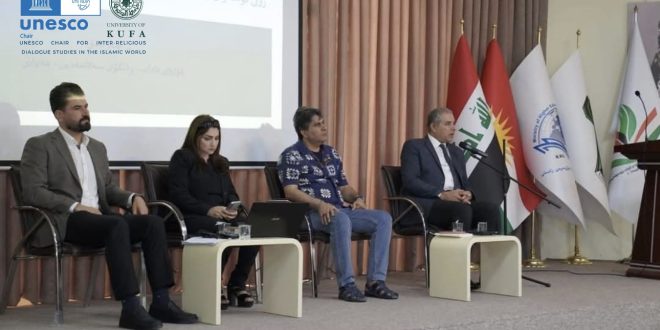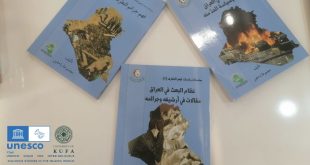Dr. Raed Abis, a member of the UNESCO Chair for Interreligious Dialogue, took part in a symposium held at the Central Library of Halabja University on August 27, 2025, devoted to the Kurdish genocide. His lecture underscored the significance of anthropological studies in addressing the Halabja atrocity and explored methods of documenting the genocide and rearticulating its narrative, thirty-seven years after it was perpetrated by the defunct regime. He emphasized the moral responsibility of clarifying the circumstances of this crime for future generations, so as to nurture civil peace, national unity, and the values of coexistence.
The importance of such documentary symposia lies in strengthening avenues of national dialogue by revisiting the crimes inflicted upon the people of Iraq as a result of misguided policies—policies whose repetition must be prevented. They serve as a means of cultivating public awareness, educating political entities, and guiding decision-makers to labor earnestly toward the edifice of national unity, grounded in the respect for social diversity and human rights, within the framework of a united and democratic Iraq.
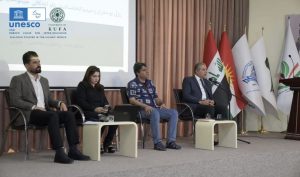
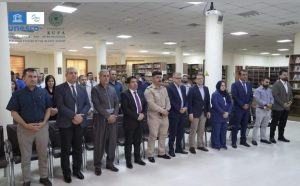
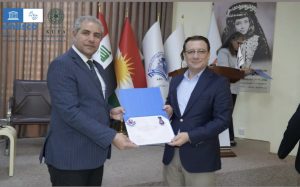
 UNESCO CHAIR For Inter-Religious Dialogue Studies in The Islamic World
UNESCO CHAIR For Inter-Religious Dialogue Studies in The Islamic World
